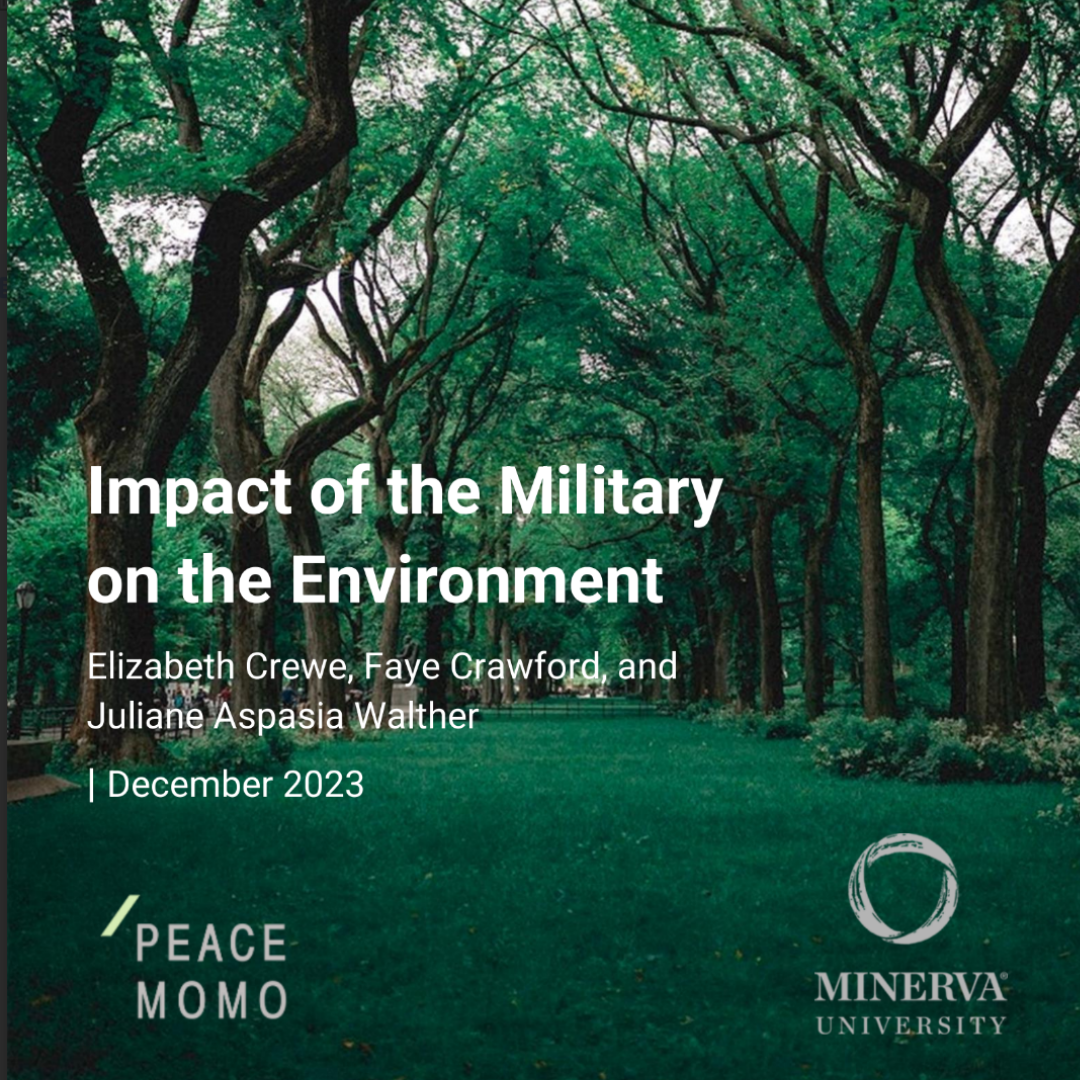
In September, with fall in full swing, PEACEMOMO met up with friends from Minerva University. Minerva University is a cross-border learning organization with no physical campus. For the second half of '23, Minerva University students based in Seoul, South Korea, where they studied and worked on projects with local civil society organizations. As a civic partner at Minerva University, PEACEMOMO worked with Elizabeth, Jules, and Faye on a three-month research project.
The three of them studied the commonly drawn question of “The impact of military activities on the climate” in the form of a short report. This gave PEACEMOMO a valuable resource as a gift to support the hidden link between military activities and the climate crisisthat we had been focusing on. To see the valuable work done by Minerva students, please click the link below.
In these times, one’s attention is once more drawn to the particular peculiarity of militarization in Northeast Asia, where some of the world’s strongest militaries appear always on the edge of a conflict that few of them seem to actually want. As a result, military exercises in Northeast Asia are not just about training troops or testing strategies: they are a performance of force.
With that said, we embark on a close examination of the environmental effects of military training and exercises, with a particular focus on the alliances and tensions of East Asia, namely between South Korea,North Korea, Japan, China and the USA. This is a crucial component of how the public weighs up themilitary, since the practices we will describe have detrimental effects on civilians’ short and long-termhealth and quality of life as it relates to the natural world. Oftentimes, related reports concerning themilitary’s impact on the environment focus on wartime practices; however, by focusing specifically onmilitary exercises, this report demonstrates that the military harms the environment even in peacetimes,especially when exercises are performative (as they are in Northeast Asia).
“The environmental impacts of military exercises will never be eliminated within the current paradigm of militarization. For fear of appearing weak, major military nations like Korea, China and the USA will not unilaterally reduce military exercises while their rival powers continue to use them as demonstrations of force. This in spite of the fact that all nations would ultimately benefit from increased environmental protections, as our report has shown. Instead, the current political climate creates an incentive for short-term thinking about the natural world. Lawrence et al. (2015) put it this way in their report on how war
affects the environment: “Often, natural ecosystems are termed “terrain” in military battlespace terminology, taking on an anthropogenic rather than an eco-centric view of natural landscapes duringperiods of armed conflict. As a result, ecosystem health and integrity are often neglected casualties of warfare”.
These arguments, in conjunction with the contents of our report, act to strengthen calls for demilitarizationaround the world. While arguments around how to achieve such peace fall firmly outside of the scope ofthis report, our research has consistently revealed the importance of civilian involvement, activism andeducation. To prompt further engagement with these topics, we encourage readers to explore the furtherreadings provided at the end of this report, many of them curated by our partner organization,PeaceMOMO.”
This report was written by students at Minerva University.
It does not necessarily represent the official views of PEACEMOMO.

![[인터뷰] 아름다운재단 국내나눔교육현황조사 보고서_피스모모](https://peacemomo.org/wp-content/uploads/image_1535021625426-220x220.jpg)
![[자료] 2018 아시아 평화교육 워크숍 자료집](https://peacemomo.org/wp-content/uploads/image_1539745762758-220x220.png)
![[자료] 창작과 비평 2018 겨울호 – 평화와 교육 어떻게 교육할까?](https://peacemomo.org/wp-content/uploads/image_1550223908665-220x220.jpg)
![[출판] P.E.A.C.E 페다고지 단행본 (구매하기, 클릭!)](https://peacemomo.org/wp-content/uploads/image_1485791038787-220x220.jpg)